by Robert Case | Oct 31, 2024 | Internship Experiences, Uncategorized, Undergraduate Students
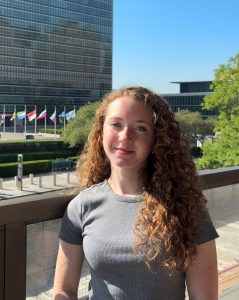
My name is Charlotte Sens, and I am a Diplomacy and International Relations major with minors in Asian Area Studies and Data Visualization. This summer I am interning with the International Rescue Committee in their Workforce Development taskforce, finding work opportunities for refugees mainly coming from Haiti and the Middle East (Palestine and Syria). I mainly craft resumes and apply to jobs for our clients, while also completing intake meetings and doing data entry. I am communicating with many different people in different languages throughout the day, which occasionally presents challenges to clear communication. To expand on this, some of our clients will move out of state and fail to tell our organization, distancing themselves from the services we provide. Other times, I will organize a meeting with a client, but my translation will be slightly incorrect and the conversation will become redundant and frustrating as we both fail to understand each other. However, through this frustration, I have learned to be patient and how to productively address client frustrations while moving forward with our own goal to find them a job.
Refugeeism and migration are significant public concerns within the international community and domestically. This internship has brought to light systematic disadvantages that refugees face in coming to the United States. While I had previously learned of the refuge process in a previous class (ETW: Refugees, Religion, and Politics and International Relations of Southeast Asia), it is very different seeing it in practice. Many of our clients do not speak English or do not have substantial employment history or education or access to a car. As I try to find jobs to accommodate them, I find that many simple, entry-level jobs have unfair requirements far outside the qualifications of my clients. I find that my coursework with the school of diplomacy has helped remedy this, as I have been able to utilize writing and research skills to find businesses that will accommodate my clients, and the resources provided by the school of diplomacy has allowed me to cultivate professional skills so that I can confidently conduct myself both when I’m in the office and when dealing with clients and employers.
The professional skills I have learned throughout this experience, including professional communication and conduct as well as data entry and reporting skills, have made me more confident to enter the work force post-grad. I have also become more familiar with the operations of the migration and refugee system within the United States, and I can bring this knowledge to future experiences. I would highly recommend this internship to other students as it is highly rewarding work, and every task serves to aid refugees and improve their livelihoods. While it may be frustrating or demoralizing at times, it is a very positive experience to be able to help those in need.
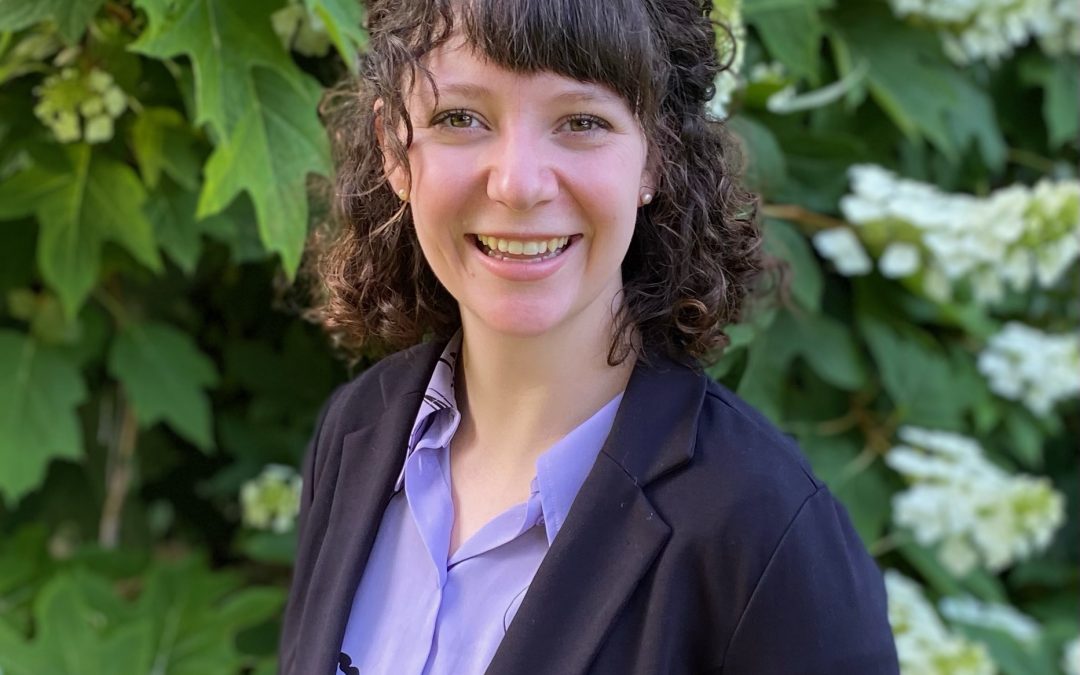
by Alondra Duncan-Belford | May 31, 2023 | Graduate Students, Internship Experiences
Hello! My name is Christina Grossen, and I am a recent Master’s graduate of Seton Hall University’s School of Diplomacy and International Relations. I was a research/data intern coding cultural heritage sites in Ukraine. While my internship was through the Smithsonian Cultural Rescue Initiative (SCRI), I worked directly with a team for the Cultural Heritage Monitoring Lab, built on a partnership between the Smithsonian and the Virginia Museum of Natural History. Fortunately, I found this internship through the Virtual Student Federal Service (VSFS) program offered by the US Department of State.
In the Fall of 2021, in Dr. Huddleston’s Causes of War class, I read Dr. Ron Hassner’s (2008) article, “To Halve and Hold: Conflicts over Sacred Space and the Problem with Indivisibility.” Dr. Hassner examines the causes and characteristics of conflict over sacred spaces, which opened my eyes to the vital role of cultural spaces in conflict. For many, cultural spaces are used as a unifying identity source, but for others, their destruction serves the same purpose. I wanted to explore the impact of cultural heritage sites as culture itself plays such a defining role in understanding peace and stability in conflict situations.
Unlike other internships and roles I have held in the past, I had a singular focus for SCRI – to code lists of cultural heritage sites. Every few weeks, I was given a new list of sites to go through and mine for information as deeply as possible for those sites. Sometimes the preliminary information contained names and geographic coordinates; other times, it simply included coordinates. Then using multiple online maps, I examined the site and look to find whether it is correctly listed, was used by the military, is lootable, and whether or not the site has a tourist function. Following critical information about the site, I determined whether it is listed on several tourist sites. I do this for every site assigned, and if questions or concerns arise, I reach out to my team lead and supervisor. Though I enjoy the investigative nature of the work, I sometimes find it challenging due to language barriers. The focus of this internship changes every year depending on the international climate. When I applied, I did not know I would look specifically at Ukraine. However, because of current world events, leaders and institutions must research current happenings and potential threats. Because I lack Russian and Ukrainian language knowledge, I had to problem-solve and locate helpful tools to alleviate some of my issues. This internship provided precise insight into what I am looking for in a career. While I enjoy the consistency of this work, I realized I desire more diversity in my workflow. Part of the reason I accepted this internship was to develop the data analytics skills I started exploring in my research methods class. This internship has afforded me that opportunity.
I recommend this internship to others interested in strengthening one specific skill. SCRI focuses on a niche area of study, and not everyone may enjoy the intense focus on coding and data analysis. However, because this internship is part of the VSFS, other departments offer training and informational sessions to help you develop additional skills and knowledge during the experience. I am thankful for the opportunity and what I learned from this internship!
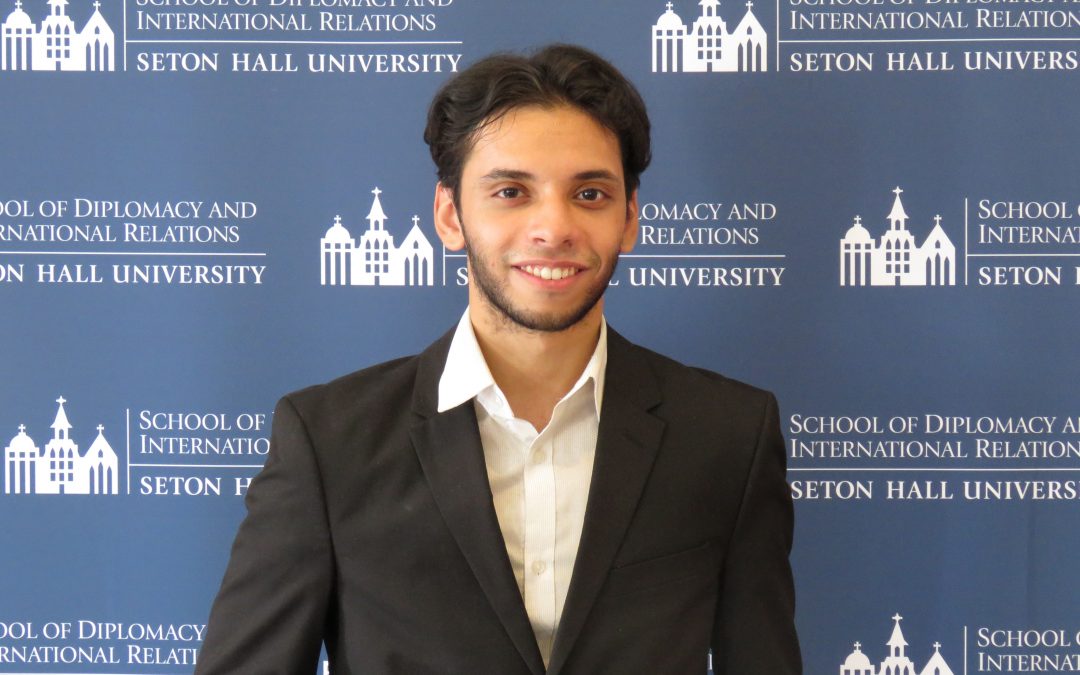
by Alondra Duncan-Belford | Feb 27, 2023 | Internship Experiences, Undergraduate Students
My name is Hamzah Khan and I am a junior in the School of Diplomacy majoring in International Relations and minoring in History, Arabic, and Economics. I interned at the Council on American Islamic Relations-NJ Chapter, the largest Muslim civil rights and advocacy organization in the country as a legal research intern. In my role, I supported the organization’s civil rights department with case intakes and researched laws and government policies in New Jersey that impact the Muslim community. I also worked with the Communications department in researching and writing op-eds, advocating for policies that impact the Muslim community such as free speech laws, Islamophobia in local governments, and religious rights for incarcerated Muslims.
One project I am proud of is our anti-Islamophobia campaign in Edison, New Jersey. Earlier this summer, the Indian Business Association held a parade in Edison for India’s Independence Day but excluded most Indian minority groups like Muslims, Christians, and Sikhs. They also ran an offensive Islamophobic float of a bulldozer which Hindu Nationalist governments in India use to demolish the homes and businesses of Muslims. They also invited a renowned hatemonger from India’s BJP to be the grand marshal of the parade. The local community in Edison was shocked by this event and CAIR spearheaded a multi-organization condemnation and pressure campaign on the local mayors to apologize for attending the event and promise further screening of parades before issuing permits. We also put enough pressure on the Indian Business Association that they publicly apologized for the offensive imagery at the parade and agreed to work with local officials to prevent this from happening in the future.
I also worked on multiple op-eds criticizing the state of New Jersey’s policy of defunding investments in companies that exercise a boycott of Israel on humanitarian grounds. These op-eds criticized this policy’s coercive nature, which stifles the free speech rights of individuals and corporations who want to exercise a peaceful boycott of a country to advocate for human rights. These op-eds were published in renowned New Jersey and national outlets like NorthJersey.com under USA Today, and the Palestinian magazine, Mondoweiss. The opportunity to get published was big for me because I am interested in journalism as well and passionate about issues such as these.
These are two instances where international issues correlated directly with our work as a civil rights organization because we advocate for human rights not only in NJ but internationally as well including India and Israel. I had the opportunity to do research into international human rights as they relate to those two countries and learn more about the geopolitics of the Middle East and South Asia. This internship has allowed me to combine things I have learned in classes like Comparative Foreign Policy and Public International Law to get on hand experience in the field of civil rights advocacy both domestically and abroad. I also got to enhance my research skills which I gained from classes like Investigating IR and DiploLab. I am interested in pursuing a career in law or journalism in the future and this internship helped me to combine both disciplines while also gaining valuable insights by working with experienced lawyers and journalists.
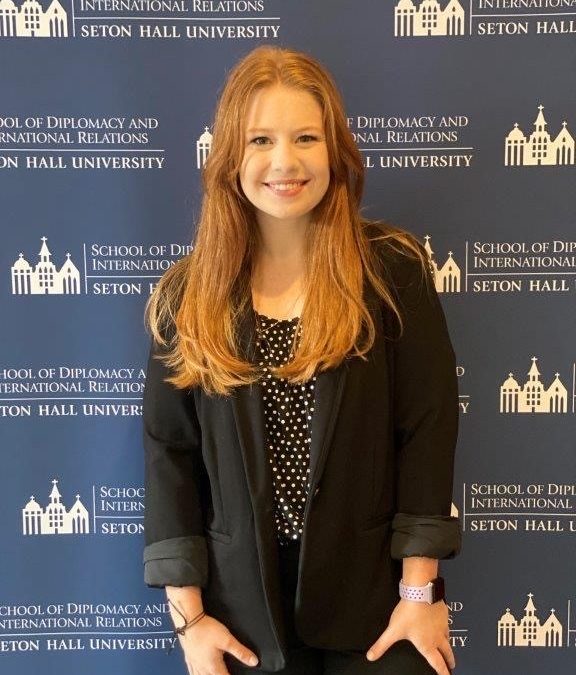
by Alondra Duncan-Belford | Apr 25, 2022 | Graduate Students, Internship Experiences
My name is Taylor Rodier, and I am a second-year graduate student at the School of Diplomacy. From the moment that I entered the graduate program at the School of Diplomacy, my goal has been to pursue a career at the US Department of State. I interned with two State Department bureaus: the Global Engagement Center and the Office of the Undersecretary for Civilian Security, Democracy, and Human Rights.
My position at the GEC was on the Iran team; my main responsibility was to track and synthesize the most current academic and think-tank research on Iranian disinformation tactics into a concise document that is then shared with over 700 individuals, both within the Federal Government and with our international government partners. I also served as one of two Intern Team Coordinators. My partner and I helped our supervisor track and peer-review the work of other threat teams, coordinate deadlines, and delegate special projects to other interns. One of my favorite projects with the GEC was to track Iranian disinformation regarding the Afghanistan withdrawal. Another one of my principal duties was to distill an entire article into a few lines and to provide a BLUF (bottom line up front) that summarizes the most crucial pieces of information into only one sentence. This sounds daunting, but luckily, I had received instruction on this process in my Diplomacy coursework which allowed me to be sufficient at this task early on.
My second internship in the Office of the Undersecretary for Civilian Security, Democracy, and Human Rights was very different from the GEC but immensely valuable in terms of professional experience. The Office of the Undersecretary leads Department efforts to prevent and counter threats to civilian security by assisting countries around the world to build more democratic and stable societies. I worked directly under the Under Secretary’s Chief of Staff, mostly on issues related to the resettlement of Afghan refugees. I synthesized information from cables and send daily updates to the Under Secretary so that she can stay informed about events on the ground in the Middle East. I also tracked trends and flag updates of notes, which helps to inform which projects and communications get priority attention from her. I was able to assist with information-sharing efforts between all eight offices that are actively being used to support the resettlement of Afghans.
Overall, my experience in the two bureaus has been the most valuable because I am getting to experience the State Department from the standpoint of both the Civil Service and Foreign Service. My work in the GEC is much more research-based, while my projects with the Under Secretary tend to be more task-oriented and responsive to daily events on the ground. I am incredibly grateful for these opportunities and the way they have helped me develop as a professional in this field. I am also endlessly grateful for the solid foundation that the School of Diplomacy provided me as it has been vital to my success in this role.
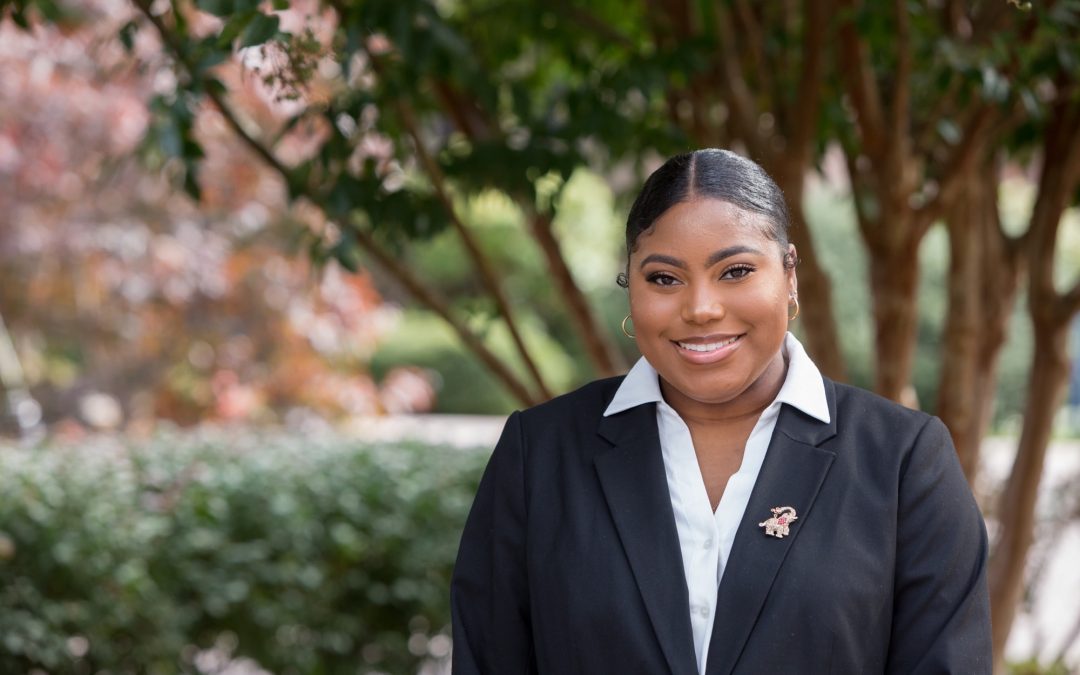
by Alondra Duncan-Belford | Mar 2, 2022 | Internship Experiences, Undergraduate Students
From the age of 16, as I reflected on how I wanted to serve others and the greater world, I knew that I wanted to work within human rights and hunger. My current internship for the U.S. State Department at the U.S. Mission to the United Nations has allowed me to explore this passion within developing nations. Daily, I assist diplomats with planning various events and notetaking during meetings, both of which help strengthen my writing and analytical skills. Previous events I have attended have covered topics such as food waste, taxation, sustainable development, and poverty. Recently, I was able to work with a U.S. ambassador on an upcoming human rights project, which has allowed me to work closely with more senior officials. It has been wonderful to expand my knowledge in different areas, such as hearing about climate change from different delegates during events and negotiations. This includes working with documents that are used within the Economic and Social Council (ECOSOC), learning the office language and acronyms, enhancing writing skills concisely through brief event summaries, and utilizing networking skills within my department. As this internship is virtual, working from home can be challenging, but it has been very rewarding knowing that we are appreciated for all the assistance that we provide. My biggest achievement thus far has been assisting an ambassador with research and a speech presentation on a subject area that I am passionate about.
What I really value from my internship is that I am given the opportunity to meet with ambassadors, diplomats, and other senior officials weekly to inquire and receive advice about their careers. Maintaining professionalism is crucial during this internship as we are constantly communicating with other U.S. State Department officials and UN employees of all fields and levels. For example, I had the opportunity to meet with U.S. Ambassador to the UN this week. Hearing her story and passion motivated me as a Black woman to join this field in the quest of breaking barriers and pursuing my dreams. My diplomacy coursework has equipped me with the background knowledge needed to understand the conversations taking place and has assisted me in transferring the skills I have learned in the classroom to the workplace.
Every day, I remember that I am 20 years old, an undergraduate student, and one of the youngest interns in my department. I am extremely grateful to be doing what I do and attribute this success to the School of Diplomacy and the assistance of Dr. Ruby. As a female student of color, I enjoy seeing representation within the State Department, and it assures me that I belong here. The people that I work with are extremely kind and willing to share advice with us about their professional careers, proving how effective networking will continue to be in any positions that you obtain.
I highly recommend this internship to anyone that is interested in the work of the State Department and the United Nations, as it has been the best of both worlds for me. I have learned so much during the time that I have spent there and am extremely eager to see all that is to come!
-Akaysha Palmer ’22
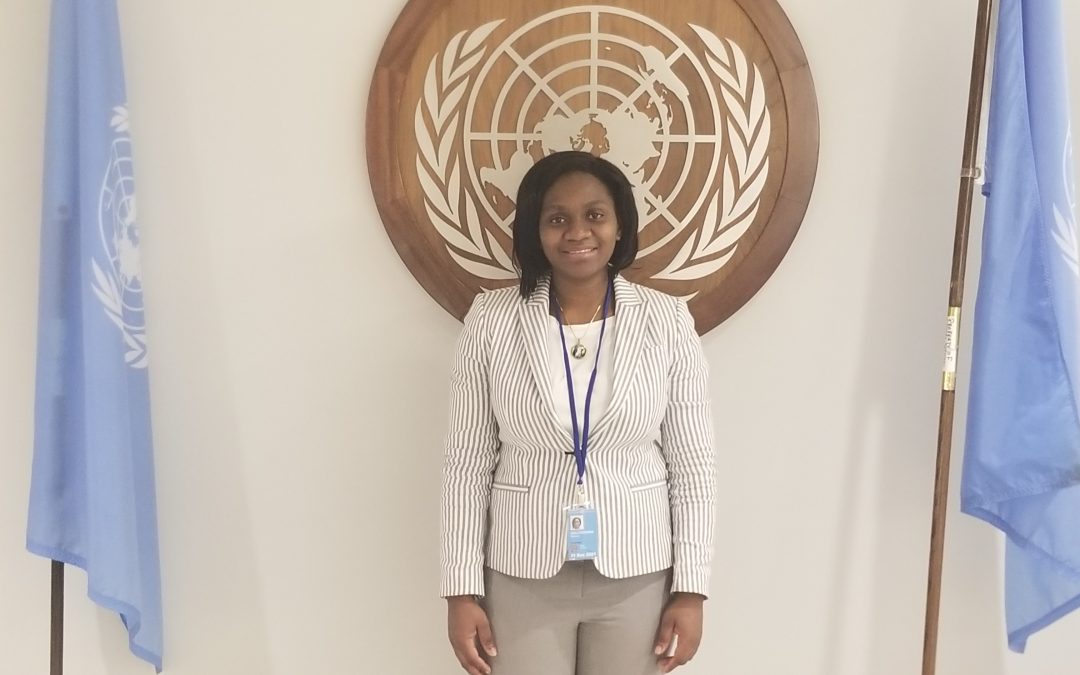
by Alondra Duncan-Belford | Jan 27, 2022 | Graduate Students, Internship Experiences
My name is Onyinye Bridget Ogili-Foreman and I am a second-year graduate student at The School of Diplomacy and International Relations. I worked as a Civil Affairs Officer intern at the United Nations Department of Peacekeeping Operations (UNDPKO) at the UN Headquarters in New York City. I always aspired to work with the UN because I have a passion for its duties, especially in areas of international security and peacekeeping in high-conflict regions. I became especially interested in the UN after taking courses that exposed me to the workings of the UN and its inherent role in international affairs.
My responsibilities included providing research assistance for policy documents and evaluating reports involving the work of different missions in the field. I also had the opportunity to work with U.N. experts to actually create policy documents. These documents will later be used in the policy prescriptions related to U.N. peacekeeping.
My internship is directly related to my coursework at the School of Diplomacy through the goals of the U.N. The goal of the U.N. is to promote diplomatic engagements between countries and create opportunities for them to find common ground on many issues that benefit from multilateral efforts. Many of the assignments I was given at the internship came naturally to me due to my previous coursework. Learning theories regarding international security and the roles of international organizations gave me material knowledge on most of the work and activities that I had the opportunity to engage in. I gained firsthand experience on how policy documents are drafted, as well as the consultation and negotiation processes needed, all of which sharpened my research, writing and analytical skills.
This internship reinforced my ambition to pursue a career with the UN and other opportunities linked to international security both in the private and public sector. My initial challenge was adjusting to work with a group of expert professionals who are more advanced both in education and experience, but I quickly learned to be humble and to ask questions. One of the most rewarding experiences was interacting with different stakeholders where I learned the nitty-gritty of the peacekeeping work. My greatest achievement has been helping to complete the work that would improve protection and safety of civilians in conflict. The satisfaction of knowing that the guidance we developed could be saving lives is truly refreshing.
My biggest take away from this internship is learning how to work with others, how to treat and respect people’s opinions and to seek to listen more. I believe these skills are going to be incredibly useful for me as a future diplomat that will be interacting with people of diverse backgrounds. I certainly recommend this internship for my fellow students as it will broaden your horizon and positively impact your personality.
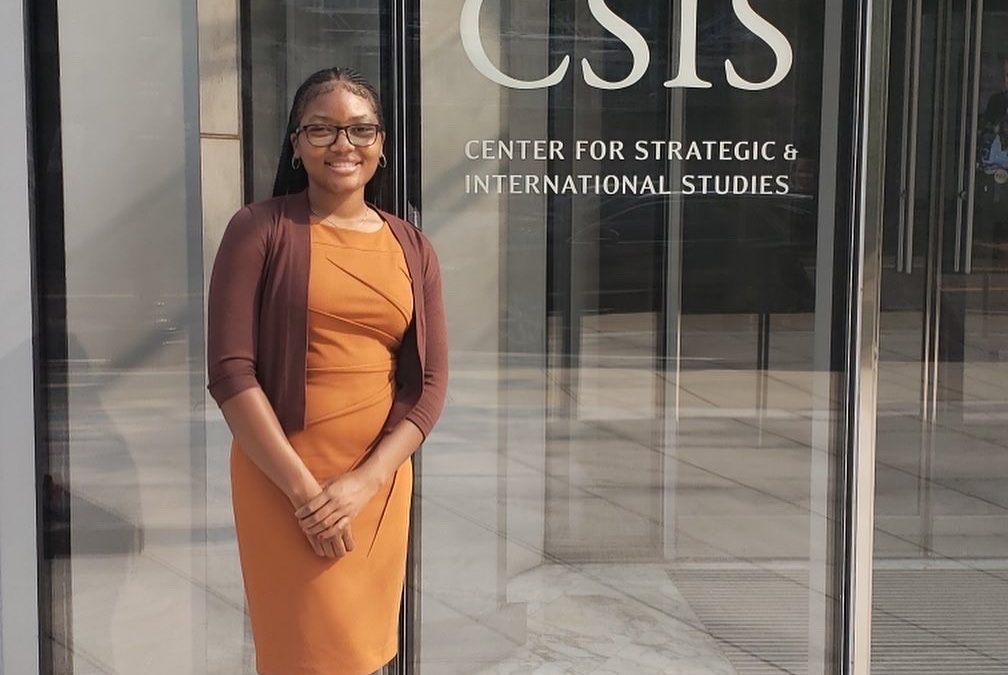
by Mohamed Elshekh | Oct 5, 2021 | Graduate Students, Internship Experiences
My name is Tajah McCray, and I am an M.A. candidate at the School of Diplomacy. In Summer 2021, I was a research intern with the Wadhwani Chair in U.S-India Policy Studies at the Center for Strategic and International Studies (CSIS). CSIS is a think tank based out of Washington D.C. and its purpose is to define the future of national security. The Wadhwani team conducts research on how the United States and India can further enhance their cooperation in areas such as defense and economic development, including promoting business engagement between the United States and India, and the environment.
While pursuing my undergraduate degree in International Relations I went on an International Service-Learning Trip to India. I stayed in India for about a month and visited the states of Andhra Pradesh and Uttar Pradesh. During my time in India, and after I returned to the United States, I knew that I wanted to continue my studies in the field of International Relations and further my knowledge of India and South Asia. That experience led me to the Diplomacy program here at Seton Hall University and the Internship with the Wadhwani Chair in U.S-India Policy Studies.
As a research intern, I had multiple tasks but two tasks that I enjoyed were tracking information regarding the COVID-19 outbreak in India and writing my own blog post to publish with CSIS. I enjoyed the research because it gave me a chance to explore the healthcare system of another state and I was exposed to different challenges India and other emerging states face regarding global health such as the lack of medical supplies and the impacts of vaccine nationalism.
I was given the freedom to write blog posts for CSIS on topics such as U.S-India relations, Indian economic reforms, innovation, and defense. While I was extremely excited about this opportunity it was challenging. The posts must be written in executive style writing which I am familiar with thanks to two classes I took here at Seton Hall which are Comparative Foreign Policy and the Statecraft of Foreign Policy. During these classes, I was tasked with writing an executive summary on U.S-Saudi Arabia relations and U.S-India relations. As a result, I felt prepared to write my blog post.
I would recommend this internship to anyone interested in learning about India or South/Southeast Asia. During my time at CSIS I covered India’s cooperation with China, Japan, Bangladesh, Myanmar, Sri Lanka and more. In addition, I expanded my knowledge on many areas related to international relations such as trade, defense, global health, and international law. I also had the opportunity to network with senior officials who are in careers that I potentially would like to enter such as becoming a Research Fellow in South Asia relations at the Heritage Foundation or entering a career in the civil service through the U.S. State Department. This internship has built my confidence and it truly was a great learning experience.
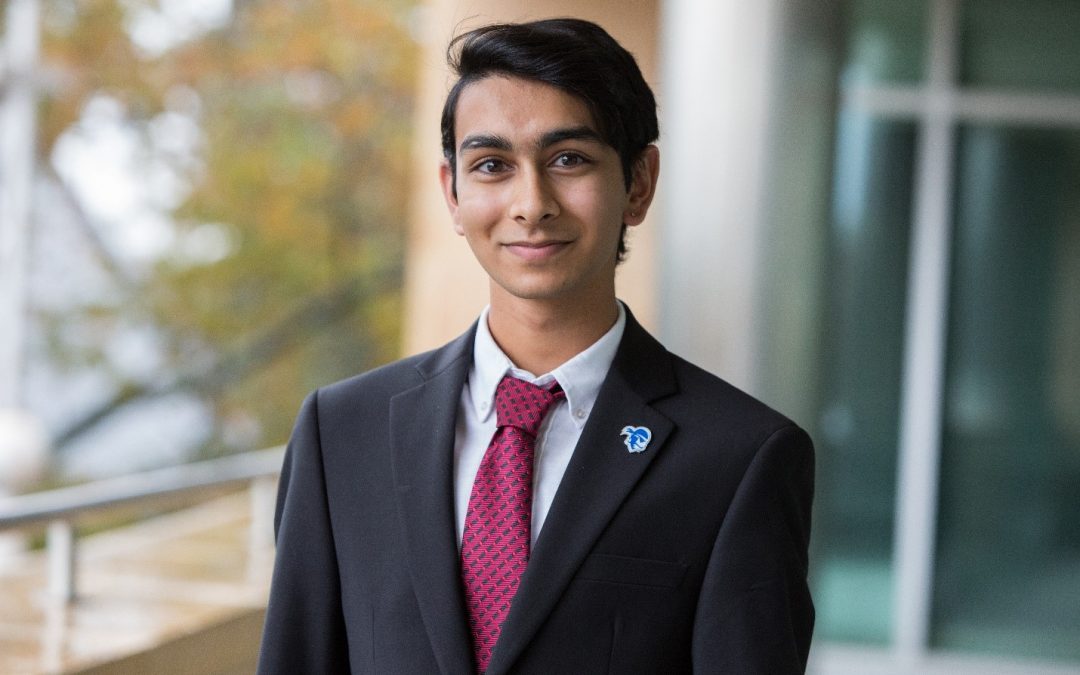
by Mohamed Elshekh | Aug 4, 2021 | Internship Experiences, Undergraduate Students
My name is Keshav Agiwal, and I am a junior at Seton Hall University, double majoring in Diplomacy and International Relations and Philosophy with a minor in Communications. I am currently interning with the Gore Law Office as a client engagement intern. This internship has allowed me to develop a deeper understanding of the court system and the field of family law. While I work with clients and assist them in understanding court procedures, I also research how the law might apply to specific situations.
The skills and concepts I learned in courses like Cross-Cultural Negotiations and Public International Law have prepared me to complete my internship tasks effectively. Cross-Cultural Negotiations focused on simulations that encouraged students to communicate in ways that addressed the needs of all parties involved. In the course, we examined the norms of communication in different ethnic groups and how these differences could impact the effectiveness of communication between states. My internship has provided me with the opportunity to speak with a number of clients from diverse backgrounds and use this foundational knowledge to develop a closer connection with them – in turn allowing me to effectively help them achieve their goals.
Along with communication skills, I believe that strong writing is important in the field of diplomacy and law. Through my Public International Law course, I learned to analyze cases and write concise briefs that furthered my understanding of the law. Similarly, one of the most important skills I practice with Gore Law Office is the ability to write clearly and concisely by including only the most important facts of the case in briefs and memos.
The pandemic has forced many things to be done virtually. Although I am working from home, my supervisor has been working hard to give me the most of this experience. He hosts workshops and training sessions on different topics where I learn about interesting concepts and rules in family law, and skills I will need to succeed in law school. This experience has solidified my decision to pursue a career in the field of law. Though the workload and deadlines can prove to be a challenge, the results, and joy that some clients express at the end of the process keep me motivated to work harder and continue to help others.
I would recommend students interested in law to intern with a law office or attorney because it will give them insights into some of the daily tasks of lawyers. I am fortunate that my supervisor, an attorney, has been very transparent with me. He has taught me several important skills I hope to use as I grow professionally. I hope to keep strong connections with everyone I met at this law office, and I am certain that I will most definitely use the skills I gained through this internship in the future.








